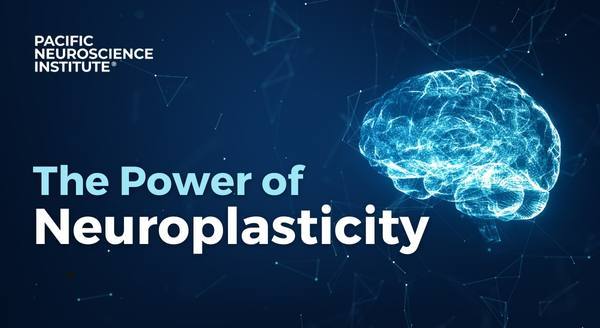
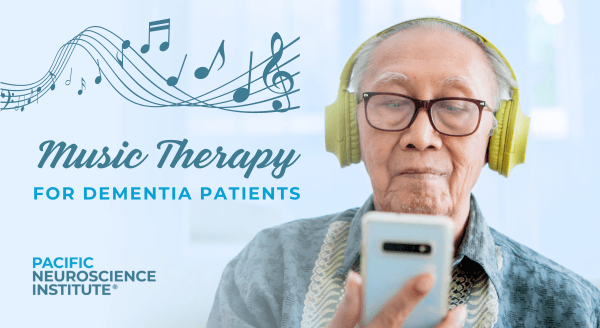
The Unexpected Benefits of Music Therapy for Dementia Patients, According to a Geriatrician
by Guest Author
Discover the unexpected benefits of music for dementia patients from Scott Kaiser, MD. Learn how music therapy can help individuals express themselves, preserve memories, and enhance overall brain health in Alzheimer’s and dementia patients, along with best practices for using music in caregiving.
Tony Bennett was diagnosed with Alzheimer’s disease in 2016, but continued to sing all the way until his death at age 96 in July 2023.
“Tony left us today but he was still singing the other day at his piano and his last song was, ‘Because of You,’ his first #1 hit,” his team announced after his passing.
While Bennett was an extraordinary artist, experts say that music can benefit almost anyone with dementia—and that dementia patients’ memories of their favorite songs may be indelible, even if they themselves aren’t musicians or artists.
How Music Helps With Communication Skills
One of the most heartbreaking aspects of dementia and Alzheimer’s is when patients are unable to express themselves. Experts agree that music may help with that in a big way.
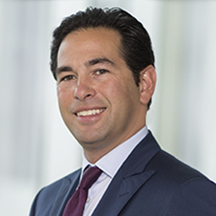
Scott Kaiser, MD, a geriatrician and Director of Geriatric Cognitive Health for the Pacific Neuroscience Institute, explains:
“Music therapy can help people learn to express themselves through song. With this, over time, as patients utilize neural pathways more heavily engaged during singing, they can ultimately improve their ordinary speech—it’s as if there is a complete shutdown of a major freeway and by diverting to other routes the normal flow of traffic is ultimately restored.”
How Music Strengthens Long-Term Memory
You don’t need to be a legendary crooner to remember music, even amid cognitive decline.

“It’s not uncommon for people living with Alzheimer’s disease or other types of dementia to remember music and songs even when they may forget many other names or words and otherwise have significant cognitive deficits,” Dr. Kaiser says. “There are many potential reasons for this—some of which have been clearly demonstrated in research and practice and others which we are only beginning to understand—including the fact that music may tap into many different regions, pathways and processes in our brains.”
According to Dr. Kaiser, remembering music or singing a song may use parts of the brain that aren’t impacted by neurodegenerative illnesses like Alzheimer’s and dementia. “As a result, musical perception, emotion and memory can survive long after other forms of memory and cognitive function have disappeared,” he explains.
That said, if you are a rockstar (or just in a garage band or an avid shower singer), you may retain even more musical memory than others.
In the case of someone who is a professional musician, or someone who’s highly practiced, this musical capacity may be preserved even in the setting of significantly advanced underlying illness as this calls upon a deeply engrained procedural memory—’like riding a bike’—which is likely to be impacted long after other aspects of memory for events, knowledge and reasoning.
Scott Kaiser, MD
How Music Therapy Protects Brain Health
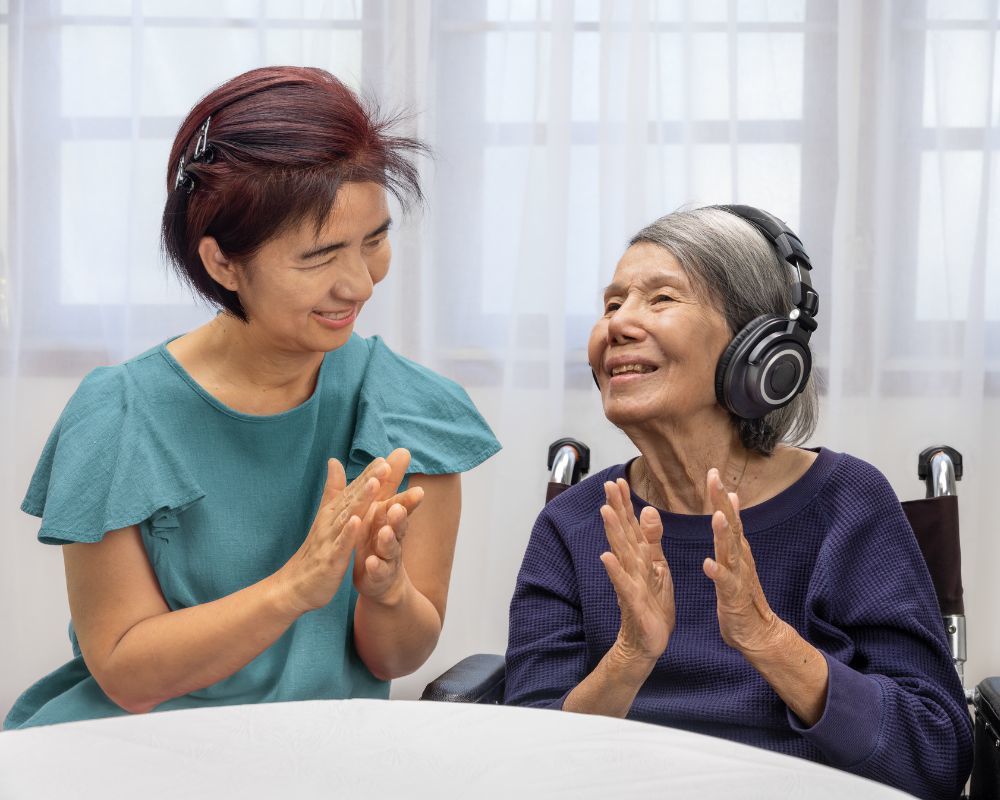
As far as exactly how music can help dementia and Alzheimer’s patients with memory, Dr. Kaiser explains, “Studies have demonstrated ways music therapy can successfully protect several specific cognitive domains—including autobiographical and episodic memories, psychomotor speed, executive function—and overall global cognition in people with Alzheimer’s disease. One solution, SingFit, actually draws upon this science, while leveraging novel technology and innovations, to make the benefits of music therapy widely available, uniquely engaging, and positively impactful for people with dementia.”
What Are the Best Ways To Use Music Therapy To Help Alzheimer’s and Dementia Patients?
According to the Alzheimer’s Association, there are some best practices to keep in mind when exposing Alzheimer’s and dementia patients to music. These include:
- Using music sources that don’t have commercial interruptions, which may confuse the patient
- Letting the patient choose the music (if and when possible), or choosing music that is familiar to the patient
- Choosing music to fit the mood you’re trying to create: Up-tempo music for inspiring high-energy and activity, soothing or quiet music to inspire calmness and relax the patient
- Encouraging movement and activity, whether it’s all-out dancing (if they’re safely able) to clapping, foot-tapping or humming
- Avoiding outside background noise by turning off TVs or other media and closing windows if possible, to prevent confusion for the patient
How Else Does Music Therapy Benefit Brain Health?
In addition to the cognitive benefits of music for dementia and Alzheimer’s patients, music can also potentially help with other conditions.
Other benefits of music include a boost in neuroplasticity, which may potentially in turn demonstrate improvements in hormone levels and immunity, as well as a reduction in anxiety, according to Dr. Kaiser.
Additionally, Dr. Kaiser says music may help with behavioral symptoms of Alzheimer’s and dementia, which can include agitation, physical or verbal aggression, restlessness, yelling, delusions and hallucinations. A bonus benefit, Dr. Kaiser points out, is that when these conditions improve for the patient, the quality of life improves not just for the patient, but also for their caretakers, who find their own stress levels significantly alleviated when behavioral symptoms are eased.
Article Adapted from Parade.
Experiencing Memory Concerns? Unsure of Next Steps to Take?
Have you received a diagnosis of Alzheimer’s, dementia, or mild cognitive impairment? Are you experiencing memory changes, and unsure of next steps to take? If you’ve answered ‘yes’ to either of these questions, then the Brain Wellness & Lifestyle Program is the solution for you.

Join the Brain Wellness & Lifestyle Program to access personalized courses aimed at optimizing your brain health. Our expert brain health specialists address the five essential factors critical for preserving memory and enhancing cognitive well-being.
What to expect:
- Memory training
- Nutrition coaching
- Stress reduction
- Fitness optimization
- Sleep regulation
Offered in group or individual sessions, as well as both virtually or in-person, our brain health courses are truly made for everyone. Click here to sign up, or call 213-344-2037.
Useful Links
About Dr. Kaiser

Scott Kaiser, MD, a board-certified family physician and geriatrician, is the Director of Geriatric Cognitive Health and provides specialty geriatric medical consultations at the Pacific Brain Health Center. Focused on the needs of older patients, he works with his colleagues to provide an integrated and holistic approach to their cognitive challenges. With this “whole person” approach, Dr. Kaiser works to connect patients and their families with a broad range of resources to support their overall health and well being.
Related Articles
Related Videos
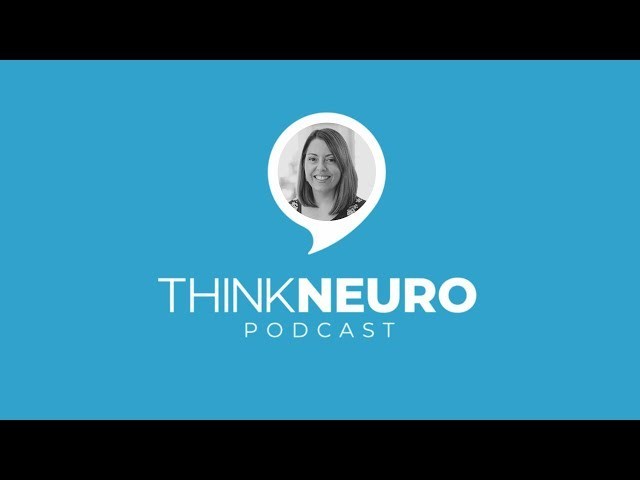 Beating the Odds on Alzheimer’s Disease | Molly Rapozo, MS, RDN, CD and Judy Davidson
Beating the Odds on Alzheimer’s Disease | Molly Rapozo, MS, RDN, CD and Judy Davidson
 Brain Health Dynamic Duo | Dr. Jennifer Bramen & Dr. Karen Miller
Strange though it may seem, we can tone our brain tissue the same way we tone our muscles. The fitness of our gray matter depends on how well we take…
Brain Health Dynamic Duo | Dr. Jennifer Bramen & Dr. Karen Miller
Strange though it may seem, we can tone our brain tissue the same way we tone our muscles. The fitness of our gray matter depends on how well we take…
 Susan’s Story | Alzheimer’s Disease
Susan shares her moving story of the devastating effect of Alzheimer’s disease on her mother and her fear as it began taking her own memory as well. She was determined…
Susan’s Story | Alzheimer’s Disease
Susan shares her moving story of the devastating effect of Alzheimer’s disease on her mother and her fear as it began taking her own memory as well. She was determined…
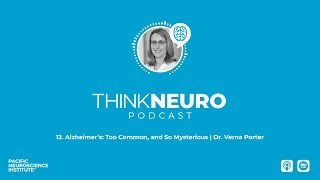 Think Neuro Podcast: Alzheimer’s: Too Common and So Mysterious | Dr. Verna Porter
One in ten Americans who are 65 and older suffer from Alzheimer’s dementia. It’s the 6th leading cause of death in the country, and it is a scourge worldwide. But…
Think Neuro Podcast: Alzheimer’s: Too Common and So Mysterious | Dr. Verna Porter
One in ten Americans who are 65 and older suffer from Alzheimer’s dementia. It’s the 6th leading cause of death in the country, and it is a scourge worldwide. But…
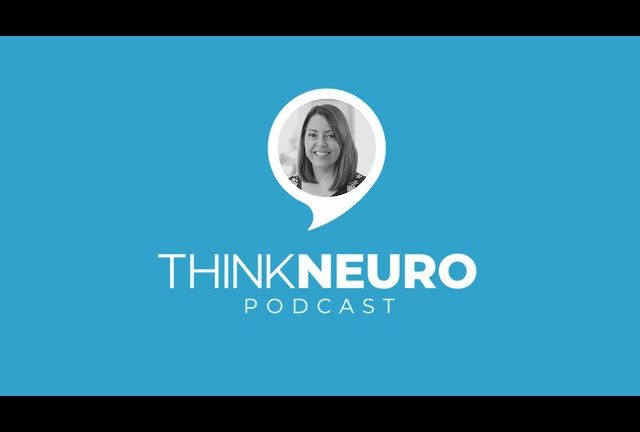
Beating the Odds on Alzheimer’s Disease | Molly Rapozo, MS, RDN, CD and Judy Davidson

Brain Health Dynamic Duo | Dr. Jennifer Bramen & Dr. Karen Miller

Susan’s Story | Alzheimer’s Disease

Alzheimer’s: Too Common and So Mysterious | Dr. Verna Porter
Last updated: October 20th, 2023

